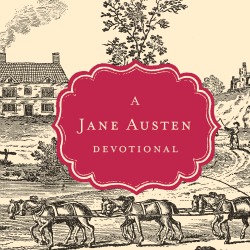U n h e a l t h y F r i e n d s h i p s
“I do not know what your opinion may be, Mrs. Weston,” said Mr. Knightly,
“of this great intimacy between Emma and Harriet Smith, but I think it a
bad thing.”
“A bad thing! Do you really think it a bad thing?—why so?”
“I think they will neither of them do the other any good.”
“You surprise me! Emma must do Harriet good: and by supplying her with
a new object of interest, Harriet may be said to do Emma good. I have been seeing
their intimacy with the greatest pleasure. How very differently we feel!” . . .
“[Emma] will never submit to any thing requiring industry and patience,
and a subjection of the fancy to the understanding. Where Miss Taylor failed
to stimulate, I may safely affirm that Harriet Smith will do nothing. . . .
Emma is spoiled by being the cleverest of her family. At ten years old, she
had the misfortune of being able to answer questions which puzzled her sister
at seventeen. . . . I think [Harriet Smith] the worst sort of companion
that Emma could possibly have. She knows nothing herself, and looks upon
Emma as knowing every thing. She is a flatterer in all her ways; and so much
the worse, because undersigned. Her ignorance is hourly flattery. How can
Emma imagine she has any thing to learn herself, while Harriet is presenting
such a delightful inferiority? And as for Harriet, I will venture to say that
she cannot gain by the acquaintance. Hartfield will only put her out of conceit
with all the other places she belongs to. She will grow just refined enough
to be uncomfortable with those among whom birth and circumstance have
placed her home. I am much mistaken if Emma’s doctrines give any strength
of mind, or tend at all to make a girl adapt herself rationally to the varieties
of her situation in life.—They only give her a little polish.”
—Emma
This repartee—which takes place between the insightful
Mr. Knightly and Emma’s beloved former governess,
Mrs. Weston—exposes serious flaws in Harriet and
Emma’s seemingly innocent friendship.
To be certain, Emma is generous with her resources. She
is also—as Mrs. Weston rushes to point out—clever, pretty,
earnest, kind, and well-intentioned. All are good qualities to
possess. But are they enough?
In Emma, we see young Miss Woodhouse use her vast
resources to “help” the disadvantaged, like Harriet. But
through Mr. Knightley’s eyes, we recognize that this does
not render Emma’s motive pure—nor does Harriet’s innocent
flattery, admiration, and high regard for Emma absolve
her of blame.
In other words, the two do nothing to build each other’s
character. Such a shaky premise nearly guarantees calamity!
The Bible warns against the company of fools: “A fool hath
no delight in understanding, but that his heart may discover
itself” (Proverbs 18:2 kjv).
We must choose our friends carefully. Any friendship
not centered around Christ, and particularly those built on
mutual foolishness, is a pathway to ruin.
Like Mr. Knightley, make a bold assessment of your
friendships. Then strive to point one another to Christ, not
each other—and see where He leads.
He who walks with wise men will be wise,
but the companion of fools will be destroyed.
Proverbs 1 3:20 nkjv


Leave a Reply
You must be logged in to post a comment.